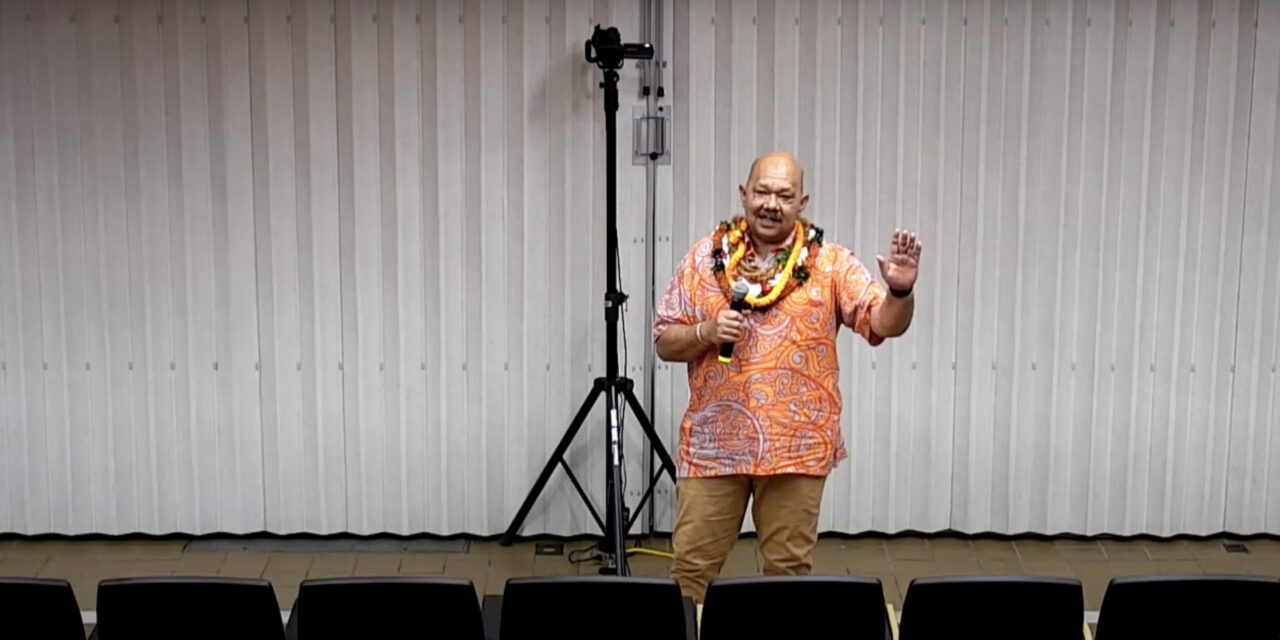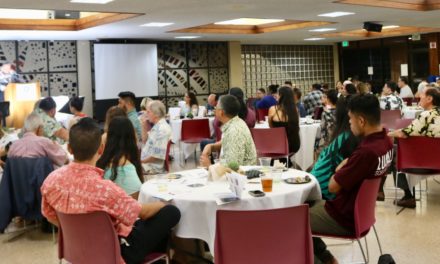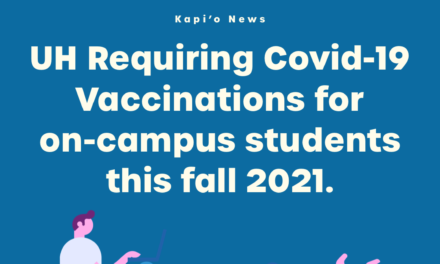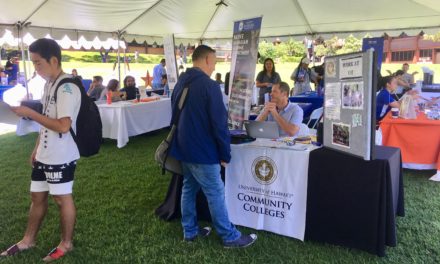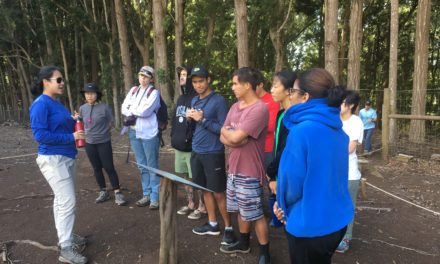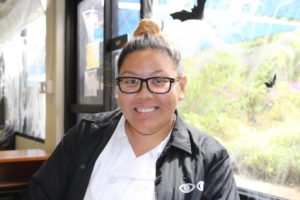David Napoleon shared how his experiences working at KCC and his background in Hawaiian studies connect to his application for the VCAA position. (Photo by Cameron Enomoto)
By Cameron Enomoto | Staff Writer
The search for a new Kapiʻolani Community College vice chancellor of Academic Affairs has found four finalists that will be considered for the position. One of the candidates will be replacing Maria Bautista who has been serving as the vice chancellor of Academic Affairs.
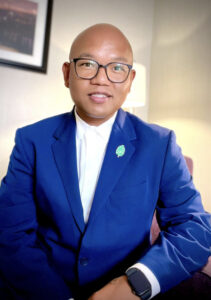
Dr. Elvin Ramos (Photo courtesy of KCC)
On Wednesday, all four candidates participated separately in an open forum held in ʻŌhiʻa 118 where they were able to share their backgrounds and answer questions from the audience. Each candidate was given an hour to speak, and the forum was open to the public.
Dr. Elvin Ramos serves as the current dean of Social Sciences and Humanities at De Anza College in Cupertino, California, and held the position of assistant dean of Academic Affairs and Faculty at the University of the District of Columbia Community College in Washington, D.C. in years prior. Ramos earned his Doctorate of Arts in History from St. John’s University, a Master of Arts in Adolescent Education, and a Bachelor of Arts in Political Science from Adelphi University.
During his allotted speaking time, Ramos discussed his experience with the importance of incorporating student voices and the impact it has on campus as a whole.
“It is important to have student voices in the work that you [KCC administration] do, or we do in academic affairs,” said Ramos. “It could have such a dramatic impact in the fabric of the work and then responding to the students in a sense that they understand that they could have this community or this dialogue has really benefitted us.”
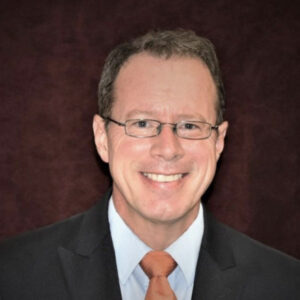
Dr. James Lee (Photo courtesy of KCC)
Dr. James Lee is the founding dean of the School of Undergraduate Studies and School of Arts and Sciences, and chair of Natural and Applied Sciences at Cambridge College in Massachusetts. Lee holds a Doctorate in Education from Northeastern University with a focus in cross-cultural stressors and their downstream impact on academic performance. He earned his master’s in Natural Sciences from Harvard University and a Bachelor of Science in Communication from the University of Miami.
Lee shared his family history and his personal views on culture and language.
“History is full of these stories,” said Lee. “Of people whose culture, language, and lives have either been stamped out purposefully or have been left to decay just through neglect. … Cultures, languages, they’re like candles, and every time one of them goes out the world becomes darker.”
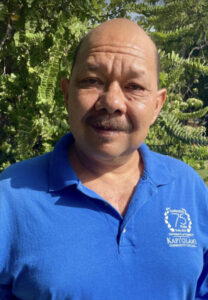
David Napoleon (Photo courtesy of KCC)
David Napoleon, also recognized as Nāwaʻa, is the current dean of Arts and Sciences at Kapiʻolani Community College. He earned a Master of Arts in Hawaiian Studies from the University of Hawaiʻi at Mānoa and a Bachelor of Arts in Hawaiian Studies from the University of Hawaiʻi at Hilo. He previously served as the department chair for Languages, Linguistics, and Literature and taught Hawaiian language classes.
Napoleon answered questions in Hawaiian and explained more about his background having been born and raised in Hawaiʻi.
“When I do speak Hawaiian, it’s not meant to make people feel uncomfortable,” said Napoleon. “It’s a way of inviting you into a space … of a language that is really beautiful and speaks to the land.”
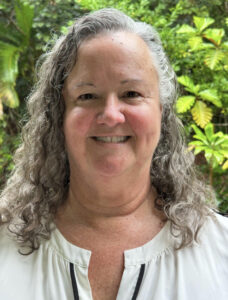
Dr. Carolyn Jones (Photo courtesy of KCC)
Dr. Carolyn Jones, also recognized as Carrie, is currently the associate dean of the College of Natural and Computational Sciences at Hawaiʻi Pacific University. Additionally, she teaches lecture and laboratory courses in biology and microbiology and also chairs the Academic Assessment and Program Review Committee. Jones holds a doctorate in Biology from Georgia Institute of Technology and a Bachelor of Science in Biology from DePaul University.
Jones discussed strategies she would use to address the declining enrollment at Kapiʻolani Community College.
“The truth is, in terms of population demographics, there are less people in high school, so we’re going to see less enrollment,” said Jones. “I think that institutions like Kapiʻolani Community College can mitigate that a little bit with the fact that they have technical skills programs, and that they cater to or could cater to groups of returning adults that may change their career focus.”

